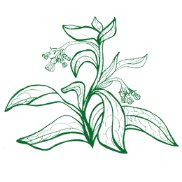What We Do
-
Food deserts - urban areas where it is both difficult to buy affordable or good-quality fresh food and economic mobility is difficult with more than half the population below the poverty level - are prevalent in America.
In Winston-Salem, there are 21 food deserts.
-
WSPC creates food forests by combining creative placemaking with permaculture. This model includes the arts, living food forests and the little free library+food pantries in areas where affordable, fresh food is not easily accessible aka Food Deserts.
We also provide education and sustainability consulting. The mobile WS Little Free Seed Library is used as an educational tool at Farmers Markets, schools, community groups and more to help support local food sovereignty!
Our Mission is in activating and bringing community together through food forests, creative placemaking & permaculture education to cocreate long lasting sustainable solutions to Winston-Salem, NC, USA food deserts.
-
A food forest is a type of permaculture or "permanent agriculture" that utilizes native plants, perennials, herbs, vines, trees & shrubs to produce food, medicine, and other benefits to humans and the supporting of important pollinators such as bees!
Food forests can be designed to be almost little to no maintenance at all, making them a great way to support the good health & resiliency of local communities & food systems.
There are considered 7 "layers" to forests: canopy trees (30ft+), small trees/large shrubs (10-30ft), small shrubs (10ft-), herbaceous perennials, ground covers, vines, and underground plants. In food forests, each one of these can produce food for humans, improve the soil, & provide food for important animals such as bees or birds.
This is something you can do in your yard or community garden!
-
The WSPC wants to have low-maintenance food forests in every food desert in the city, providing free & nutritious food to everyone in need.
-
Permaculture is an agricultural design approach where communities work with biomimicry, nature & the health of living soil for the long-term benefit of individuals & the community.
This is done through a variety of techniques & tricks that solve problems in an ecologically & socially acceptable way.
At an individual level, food forests or small gardens can be planted to reduce your grocery bill. Rainwater washing off your roofs can be collected & purified for use in the home or for the garden. These are examples of small things you can do that will support your community to be more close-knit & resilient.
At the community level, we can consider your very street - the grass patch you walk past to get to your home is required by the city to be mowed below 6 inches. Instead, what if we planted pollinators, bushes or small trees that give free fruit to the community, provide habitat for wildlife & shade to keep the street cool in the summer?
What if the city implemented separated bike lanes to calm traffic, quieting the noise from vehicles & encouraging more healthy lifestyles?
This can be done to make our community more safe, resilient, & beautiful.
-
Subreddits we like:
Book List:
The Goodreads link has options to buy the book if you so choose (see “GET A COPY” Section)
Gardening and Permaculture:
Creating a Forest Garden by Martin Crawford
The Permaculture City by Tobey Hemenway
The Earth-sheltered Solar Greenhouse Book by Mike Oehler
Growing Gourmet and Medicinal Mushrooms by Paul Stamets
City Design
Strong Towns by Charles Marohn


